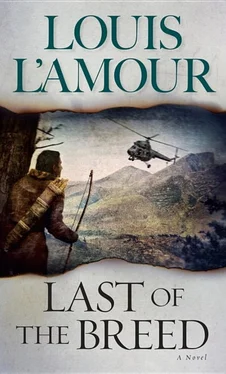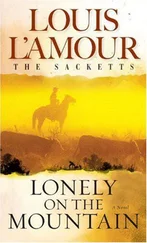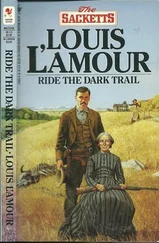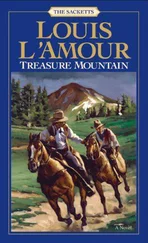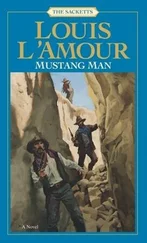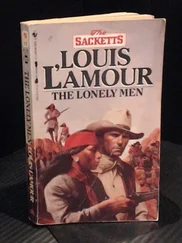Louis L'Amour - Last of the Breed
Здесь есть возможность читать онлайн «Louis L'Amour - Last of the Breed» весь текст электронной книги совершенно бесплатно (целиком полную версию без сокращений). В некоторых случаях можно слушать аудио, скачать через торрент в формате fb2 и присутствует краткое содержание. Город: New York, Год выпуска: 2010, ISBN: 2010, Издательство: Random House Publishing Group, Жанр: Триллер, Историческая проза, Приключения про индейцев, на английском языке. Описание произведения, (предисловие) а так же отзывы посетителей доступны на портале библиотеки ЛибКат.
- Название:Last of the Breed
- Автор:
- Издательство:Random House Publishing Group
- Жанр:
- Год:2010
- Город:New York
- ISBN:978-0-553-89935-1
- Рейтинг книги:3 / 5. Голосов: 1
-
Избранное:Добавить в избранное
- Отзывы:
-
Ваша оценка:
- 60
- 1
- 2
- 3
- 4
- 5
Last of the Breed: краткое содержание, описание и аннотация
Предлагаем к чтению аннотацию, описание, краткое содержание или предисловие (зависит от того, что написал сам автор книги «Last of the Breed»). Если вы не нашли необходимую информацию о книге — напишите в комментариях, мы постараемся отыскать её.
Last of the Breed — читать онлайн бесплатно полную книгу (весь текст) целиком
Ниже представлен текст книги, разбитый по страницам. Система сохранения места последней прочитанной страницы, позволяет с удобством читать онлайн бесплатно книгу «Last of the Breed», без необходимости каждый раз заново искать на чём Вы остановились. Поставьте закладку, и сможете в любой момент перейти на страницу, на которой закончили чтение.
Интервал:
Закладка:
Soldiers! At least a squad of them!
Worried, he returned to his cave. Had they, then, discovered where he was? Had he somehow given himself away? Was this a search party or just some natural movement of troops?
The latter he could not believe. There was no border here to be protected, no fortress, no camp. Such a small group would not be on a maneuver, so where were they bound?
Cutting the meat from the mountain sheep into thin strips, he smoked and dried it, meanwhile cleaning some of the sinews and rolling three strands together to make a bowstring. Then he took his bow, his bowstring not ready for use, and his small packet of meat wrapped in the skin, and he went up the mountain.
Leaving the bank of the Kalar he went off to the north following a ridge above a smaller stream, traveling northeast. He did not pause to hunt or to rest, but continued to move, keeping under cover of the forest and among the rocky crags. By nightfall he was sure he had covered twenty miles, and he camped that night beside a huge fallen tree, in the open and without a fire. In the morning he carefully removed all sign of his presence, and lifting handfuls of leaves he let the soft wind scatter them where he had slept.
Crossing a saddle between the highest peak and a long ridge, he started cautiously to descend toward the valley.
Finding a shelter in a thick stand of stone pine, he went to work on the sheep’s hide to make it into a vest, using rawhide for a lacing. It was slow, painstaking work, but from where he sat he had a good view of the mountainside, and he could work and keep a good lockout, too.
He did not want heavy clothing but several layers of light clothing that would conserve his body heat and still allow free movement of all his limbs.
Before darkness came he moved off along the slope of the mountain, working his way down into the aspen, where he found a thicket where many leaves had fallen. There he bedded down, a dry camp with no fire.
When he awakened he saw not far below him several towers of a relay station or something of the kind, and a small village. He was close enough to distinguish people moving about but not to judge who or what they were. He turned back to the thicker forest, working along a steep ridge where he camped again. There, hidden among rocks and trees, he continued his work on the sheepskin vest and on his bow. Now he began to look for the proper sort of wood for arrows. He did not like the bowstring he had, but it would do until he found better.
Watching the scene below he glimpsed people moving along what seemed to be a road, and far in the distance to the south he saw a thin trail of smoke from what might be a village. Where there was a village there would be dogs. From where he sat he could see that the Kalar took a bend toward the south and then back to the north again. Without doubt he must cross the river again, and he did not look forward to it. Crossing a river meant exposing himself to possible observation, aside from the discomfort of getting wet in what was increasingly chilly weather.
Rising, he worked his way along the mountain under the shadow of the ridge and walked east, trying to keep under cover. Here, however, the trees were scattered and much of the mountainside was exposed.
The nights were growing longer now. He walked on, stumbling occasionally and very tired.
At last he sat down, unable to go further without resting.
He sat leaning against a rock, half concealed by a bush and tree that grew nearby. The sun was rising and even that slight warmth felt good. He leaned back against the rock. His eyes closed.
Had he gone fifty feet further he would have found a path, a very dim path, but nonetheless a path.
About two miles from where he sat, the Kalar River flowed down from the north, the river he dreaded to cross. And some miles beyond was another river, still larger and much more dangerous.
Days of constant moving with too little food and little rest had drugged him with weariness. Slowly, his muscles relaxed, once his eyes almost half opened, and then he slept.
A cold wind moaned in the stone pines; a dried leaf skittered along the path and came to rest. A rock thrush poised on a twig and then flew off a few yards.
On the path there was a faint scuffling, and a man came into sight. He was a short, stocky man, as wide as he was deep, a man in a ragged fur cap, a moth-eaten fur coat, and thick pants stuffed into clumsy-looking boots. He had started around a small bend in the path when he saw a foot.
He stopped, looking carefully around. Nobody else. Nobody near, at least. He listened again and heard a faint snore. From under his coat he took an AK-47, and the gun gleamed brightly. His clothing was ragged, but there was nothing wrong about the gun.
Stepping around the tree, he saw a man asleep against a rock, a man emaciated and worn. He saw the pack of smoked meat, the spear, the sling, and the bow without a string and without arrows.
Yakov moved quietly to a seat on a rock facing the sleeping man. Then he picked up a pebble and tossed it against the man’s face.
Joe Mack awakened with a start, but with every sense alert. His opening eyes looked into the muzzle of the AK-47.
Chapter 7
The man’s cheeks were chubby and he looked fat, but Joe Mack was not deceived. He had seen such men before and knew that what looked like fat was the natural muscle of an extremely powerful man, one naturally strong, born to the strength he had.
For a moment each measured the other, and then the man spoke in what Joe Mack knew was Russian, although he knew no more than a few words of the language.
“I do not speak your language,” he replied.
To his surprise the man’s face lit up with humor. “Engless!” he said, astonished. “Spik Engless!”
The AK-47 did not waver. “Who you are?”
“I am an American” — he spoke slowly — “traveling in your country.”
The man’s eyes made a point of looking him over. “This clothes? It is tourist fashion?”
Joe Mack grinned suddenly, and the man’s face lit up again. “Tourist the hard way,” he said.
For a moment the man puzzled over that, and then he smiled again. “Why you here? This is far-off place.”
Joe Mack was puzzled. The man was no soldier, yet he carried an AK-47 and gave every evidence of being ready to use it. His clothes were nondescript, his manner as guarded as his own. Was this man also a fugitive?
“It is better I travel in far-off places,” he spoke slowly again. “I eat what the land provides.”
The man’s eyes searched his. “I am Yakov,” he said.
“I am Joe Mack,” he replied.
“Where you live?”
“In America. Until I return there I live as I can, where I can. Soon winter comes. I have no home for winter.”
“Ah?”
Yakov was ten feet away, and the AK-47 did not waver. There was no way he was going to cover that ten feet and lay a hand on that gun without catching four or five slugs, and the man was no fool.
“Why you not go down there?” Yakov waved toward the distant village.
Joe Mack took a chance. After all, what was Yakov doing up in the mountains with an AK-47? “They would put me in a house with bars.”
“Ah! An American? A prisoner? In Siberia? Russia is not at war with America!”
“No?” Joe Mack lifted an eyebrow. “Tell that to Colonel Zamatev.”
Instantly, the man’s manner changed, “Zamatev? You spik Zamatev?”
For the first time the muzzle of the gun lowered. “Where you spik Zamatev?”
“West of here, many miles. I was his prisoner.”
“You escape? He look for you?”
“He looks.”
Yakov was silent, obviously thinking. He pointed to the crude sheepskin vest. “You make?”
Читать дальшеИнтервал:
Закладка:
Похожие книги на «Last of the Breed»
Представляем Вашему вниманию похожие книги на «Last of the Breed» списком для выбора. Мы отобрали схожую по названию и смыслу литературу в надежде предоставить читателям больше вариантов отыскать новые, интересные, ещё непрочитанные произведения.
Обсуждение, отзывы о книге «Last of the Breed» и просто собственные мнения читателей. Оставьте ваши комментарии, напишите, что Вы думаете о произведении, его смысле или главных героях. Укажите что конкретно понравилось, а что нет, и почему Вы так считаете.
